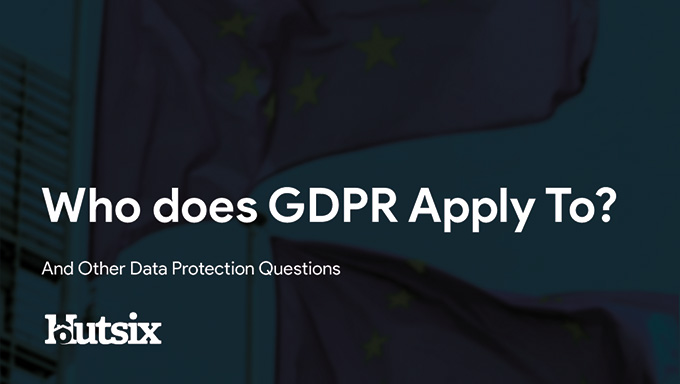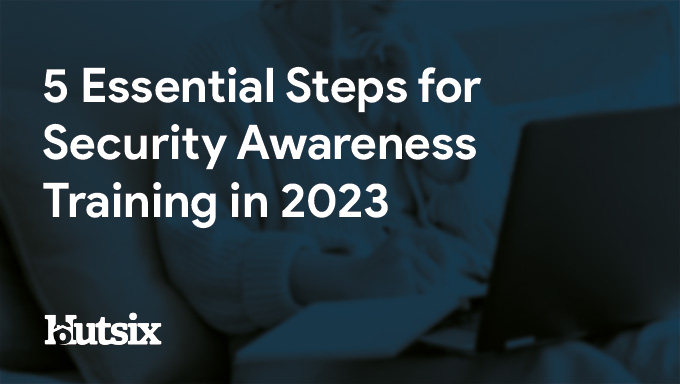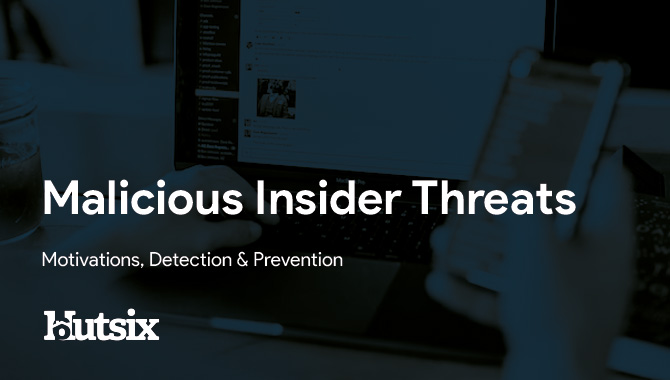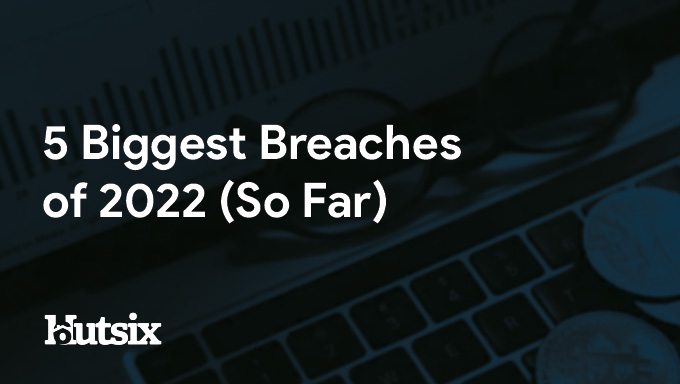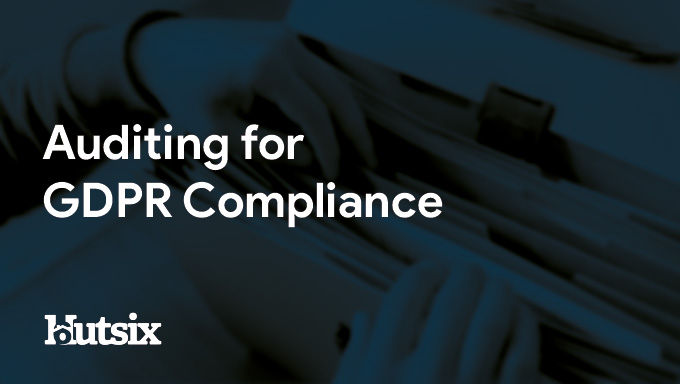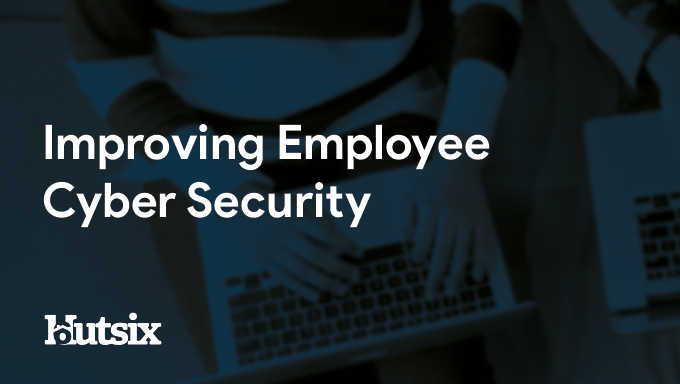What is the Impact of Security Awareness Training?
In today's digital landscape, the protection of sensitive information has become critical for both individuals and organisations. The rise of cyber threats and the potential for devastating data breaches highlight the need for improved security measures. One crucial aspect of securing data is through cyber security awareness training.
So what is the impact of security awareness training? This article will delve into key topics related to information security, such as web safety, phishing, passwords, mobile device security, and handling sensitive information. Focusing on the real, tangible impact that security training has on mitigating risks and reducing vulnerabilities.
Ready to level up your security game?
We can help you - let's have a chat.
Security Awareness Statistics
69% of large UK businesses experience an attack of breach in the last 12 months. (Source)
74% of breaches involve a human element (Source)
Only 31% of organisation have policies to ensure timely software security updates. (Source)
2022 saw the highest rate of mobile phishing in history. (Source)
Identity theft cost UK victims £5.4 billion. (Source)
36% of all data breaches involved phishing (Source)
5 Reasons Why Security Awareness Training is Important
1. Preventing Data Breaches
First and foremost, by providing employees with a comprehensive understanding of potential threats and vulnerabilities, and most importantly, how to mitigate them, information security training empowers employees to recognise and address security risks proactively.
Educating staff on best practices, such as strong password management, secure data handling, and safe browsing habits, with the right training solution, employees are properly equipped to become an active line of defence against cyber-attacks.
From identifying suspicious activities, reporting potential threats, and improved adherence to established security protocols, awareness and preparedness significantly reduce the likelihood of data breaches or incidents. With a well-trained workforce, organisations can effectively mitigate risks, protect sensitive information, and avoid costly data breaches.
2. Compliance
Many industries and sectors have specific regulatory and compliance requirements for information security, such as the General Data Protection Regulation (GDPR) in the UK or the Health Insurance Portability and Accountability Act (HIPAA) in the US.
By providing employees with knowledge of legal requirements, training promotes an expectation of compliance within the organisation. Employees gain an understanding of their responsibilities in handling and protecting sensitive data, thus reducing the risk of accidental non-compliance.
Moreover, training educates employees on best practices and procedures for data privacy, enabling them to adhere to regulatory standards effectively, again helping to avoid potential legal and financial consequences for non-compliance.
3. Security Culture
Training plays a crucial role in cultivating a strong security culture within an organisation. By educating employees on the importance of information security and their role in protecting sensitive data, it creates a shared understanding and responsibility.
From raising awareness about potential risks, such as phishing, malware, and social engineering, enabling employees to be proactive in identifying and mitigating threats, a security-conscious culture fosters a collective commitment to data protection.
With employees actively practicing secure behaviours and reporting potential vulnerabilities, with effective training, the resulting security culture promotes a sense of vigilance and accountability throughout the organisation, leading to increased resilience against a wide variety of security risks.
4. Employee Skills & Wellbeing
Information security training offers significant benefits to employee skills and wellbeing, primarily by providing users with the knowledge necessary for identifying and mitigating security risks. This enhances their professional development, as well as empowers them to make informed and secure decisions in their personal lives too.
Additionally, by understanding the importance of information security, employees can gain a sense of confidence and job satisfaction, with the understanding they are contributing to the organisation's overall security posture.
Generally speaking, when employees feel properly equipped to complete their work and supported in their role, it is reasonable to think this positively impacts their wellbeing, reducing stress and anxiety related to security concerns. Ultimately, regardless of the area, investing in employee skills and wellbeing will contribute to the overall success of the organisation.
5. Stakeholder Trust
By educating employees on best practices, policies, and procedures, stakeholders can be assured that their personal and confidential information is being handled with the utmost care and professionalism.
Building trust in the organisation's commitment to safeguarding data, and demonstrating a responsible approach towards data protection, by investing in the right security training organisations assure stakeholders that their information is valued and actively protected.
Essential Security Awareness Topics
- Web Safety
Web safety refers to the practices and measures implemented to protect individuals and organisations from online threats and dangers. It encompasses various aspects, including safe browsing, secure online transactions, and safeguarding personal information.
Web safety involves being cautious while sharing sensitive data, using strong and unique passwords, keeping software and devices up to date, and being vigilant about suspicious websites and emails.
It also includes educating users about common online threats and promoting responsible digital behaviours. By prioritising web safety, individuals and organisations can mitigate risks, maintain privacy, and protect against increasingly sophisticated cybercrime.
- Phishing
Phishing is an extremely prevalent form of cyber-attack aimed at tricking individuals into revealing sensitive information, such as passwords, credit card details, or personal data. It typically involves deceptive emails, messages, or websites that appear to be from legitimate sources, but are actually controlled by malicious actors.
Phishing attacks exploit human vulnerabilities, relying on social engineering techniques to manipulate recipients into disclosing confidential information or clicking on malicious links. These attacks can lead to identity theft, financial loss, or unauthorized access to sensitive systems.
By staying vigilant, recognising suspicious signs, and implementing security measures, individuals and organisations can protect themselves against phishing threats and safeguard their valuable information.
- Passwords
Passwords are essential for securing access to the plethora of digital accounts and systems for which so many of us are now responsible. Serving as a protective barrier against unauthorised access, put simply a strong password should be unique, complex, and not easily guessable.
Password management practices, such as using a password manager, enabling multi-factor authentication, and having a secure password generation process, are all effective strategies for maintaining strong and secure passwords.
By prioritising strong passwords and good password hygiene, individuals and organisations can both significantly reduce the risk of unauthorised access and protect sensitive information from a host of cyber threats.
- Mobile Devices
Mobile devices represent a significant security risk, in large part because they are mobile. With so much sensitive and confidential information contained within these devices, any unauthorised access can present a considerable cyber security threat.
Mobile device security involves measures like setting strong PINs or passcodes, enabling biometric authentication, keeping devices and apps updated, and being cautious about downloading apps from untrusted sources.
Additionally, implementing remote tracking and wiping capabilities adds an extra layer of protection in case of loss or theft. By prioritising mobile device security, organisations safeguard their data and minimise the risk of unauthorised access or compromise.
- Handling Sensitive Information
Handling sensitive information involves the responsible management and protection of confidential data to prevent u0nauthorised access or disclosure, including identifying sensitive data, such as personal or financial information, and applying the appropriate safeguards.
Best practices for handling sensitive information include using secure communication channels, encrypting data in transit and at rest, implementing access controls, and securely disposing of information when it is no longer needed.
Training employees on proper data handling procedures and promoting a culture of confidentiality are also essential, again mitigating the risks associated with handling sensitive information and ensuring its confidentiality and integrity.
Information Security Training for Your Organisation
The unfortunate reality is that any organisation has the potential to fall victim to a devastating cyber-attack. Despite technical precautions that help mitigate this risk, your employees are the most immediate and vulnerable target for malicious actors - and they are your first line of defence.
Now more than ever, you are reliant upon your people making the correct choices in the face of security decisions. Thankfully, with the right knowledge, many of these human vulnerabilities can be easily addressed.
Hut Six's Security Awareness Training solution reduces the risk of a successful cyber-attack. Preventing financial losses, damage to reputation, potential fines, and litigation, robust and engaging information security training is an essential for any organisation looking to protect their effectiveness.
Security Awareness for your Organisation
Enjoyed our blog? Learn more about how Hut Six can help improve you security awareness with training and simulated phishing. Start a free trial now, or book a meeting with one of our experts.
Featured
What is Personal Data?
Learn about personal data, its types, and significance in data protection. Explore general and special category data, as well as pseudonymised and anonymised data under the GDPR.
Who Does GDPR Apply To?
Who Does GDPR Apply To? And Other Data Protection Questions/ Information Security blog by Information security awareness provider Hut Six Security.
Does ChatGPT Pose a Cybersecurity Risk
In this blog post, we explore whether AI chatbots like ChatGPT pose a cybersecurity risk. We delve into the potential vulnerabilities and threats posed by chatbots, and discuss measures that can be taken to mitigate these risks. Read on to discover how you can ensure the security of your organisation's chatbot interactions.
How Do I Get Cyber Essentials Certified?
Learn how to obtain Cyber Essentials certification and enhance your organization's cybersecurity posture with our comprehensive guide. Our expert insights will help you navigate the certification process to meet the requirements for Cyber Essentials.
Essential Steps for Security Awareness Training
Starting a security awareness training campaign? Here are 5 essential steps to help ensure information security success.
Malicious Insider Threats - Meaning & Examples
Malicious insider threats can cause massive problems. Here we examine some of the motivations behind attacks and methods of detection organisations can use to reduce risk.
5 Biggest Breaches of 2022 (So Far)
Five of the biggest and most significant data breaches, hacks, and information security attacks of 2022 (so far).
Auditing for GDPR Compliance
Questions to consider when auditing your business or SME for General Data Protection Regulation (GDPR) compliance.
Improving Employee Cyber Security
With human error responsible for many breaches and attacks, we offer some helpful areas for improving employee security compliance.
5 Cyber Tips for your Business
Essential cyber tips for helping your business or SME improve information and cyber security.




